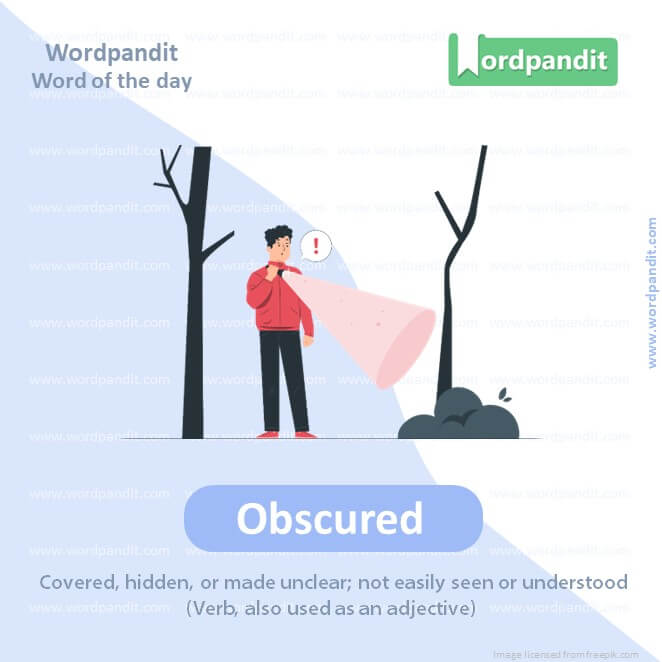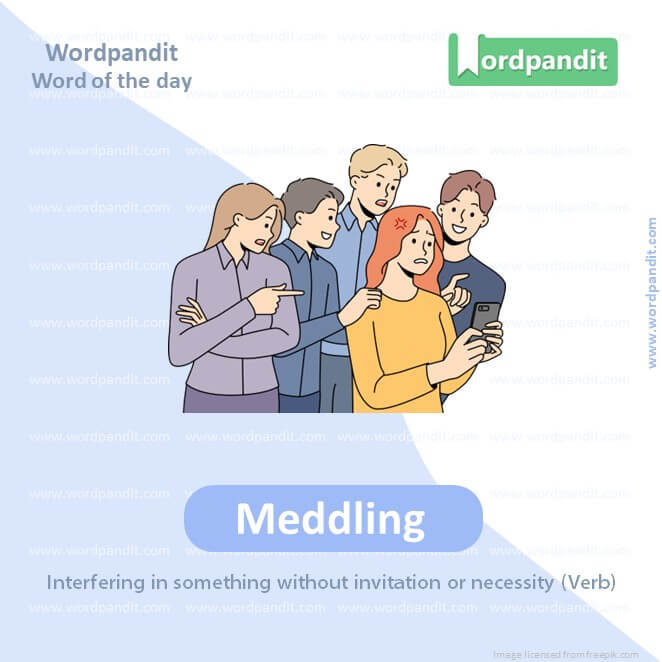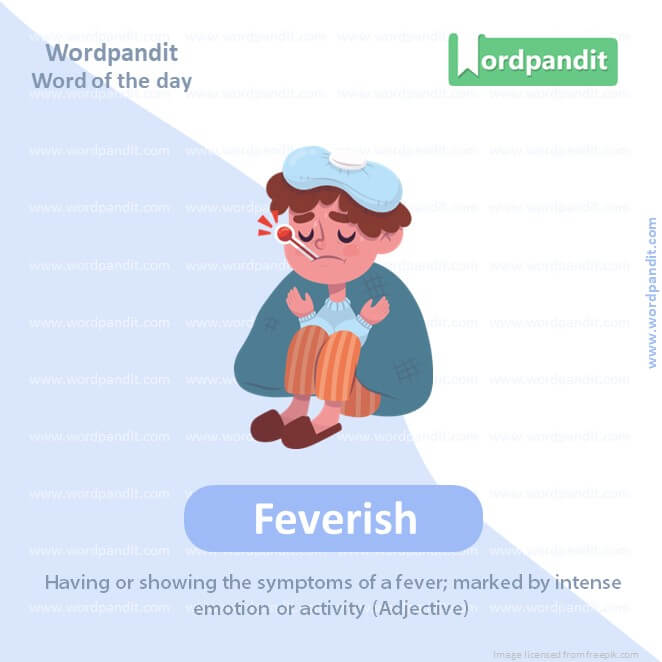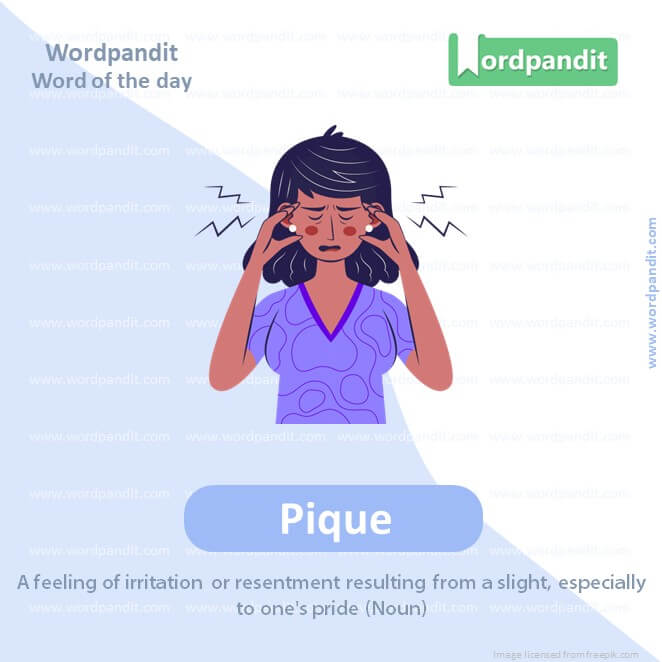Daily Vocabulary Words: List of Daily Used Words in Leading International Newspapers
Hi there. Welcome to this special section @ Wordpandit.
Our endeavour here is very simple: to highlight important daily vocabulary words, which you would come across in leading newspapers in the country. We have included the following newspapers in our selection:
• The New York Times
• The Washington Post
• Scientific American
• BBC
• The Guardian
• Psychology Today
• Wall Street Journal
• The Economist
We are putting in extensive work for developing your vocabulary. All you have got to do is be regular with this section and check out this post on a daily basis. This is your repository of words that are commonly used and essentially, we are posting a list of daily used words. Hence, this has significant practical application as it teaches you words that are used commonly in leading publications mentioned above.
Visit the website daily to learn words from leading international newspapers.

WORD-1: Obscured
CONTEXT: this metaphorical flare will be obscured by all the actual flares caused by oil companies still cheerily burning waste gas across the Gulf.
SOURCE: Guardian
EXPLANATORY PARAGRAPH: Obscured is like something being hidden or covered up so you can’t see it well. Imagine your favorite toy is under a blanket. You know it’s there, but you can’t see it because it’s obscured by the blanket.
MEANING: Covered, hidden, or made unclear; not easily seen or understood. (Verb, also used as an adjective)
PRONUNCIATION: ob-SKYURD
SYNONYMS: Hidden, Concealed, Veiled, Shrouded, Masked
USAGE EXAMPLES:
1. The view was obscured by fog.
2. The true meaning of his words was obscured by his complicated language.
3. The path was obscured by overgrown bushes.
4. She tried to obscure her disappointment with a smile.

WORD-2: Dignitaries
CONTEXT: international dignitaries flying into Cop28 on private planes will be able to look out of their windows at the oilfields and consider how nice it is to be welcomed by a roaring fire.
SOURCE: Guardian
EXPLANATORY PARAGRAPH: Dignitaries are very important people, like the principal of your school or the mayor of your town. They are people who have important jobs and sometimes make big decisions.
MEANING: People who hold high-ranking or important positions in society. (Noun)
PRONUNCIATION: DIG-ni-tair-ees
SYNONYMS: Officials, Leaders, Notables, VIPS, Eminent persons
USAGE EXAMPLES:
1. The event was attended by several dignitaries from different countries.
2. Local dignitaries were invited to the opening ceremony.
3. The dignitaries sat in the front row during the concert.
4. The mayor and other dignitaries gave speeches at the festival.

WORD-3: Meddling
CONTEXT: football clubs but not our newspapers, which should rather be squired by the right kind of meddling foreigners
SOURCE: Guardian
EXPLANATORY PARAGRAPH: Meddling is like interfering or getting involved in something that’s not your business. It’s like if you try to play with your friend’s toy without asking.
MEANING: Interfering in something without invitation or necessity. (Verb)
PRONUNCIATION: MED-ling
SYNONYMS: Interfering, Intruding, Prying, Tampering, Intervening
USAGE EXAMPLES:
1. The neighbors were always meddling in each other’s affairs.
2. He didn’t like his relatives meddling in his life choices.
3. The government was accused of meddling in the election.
4. She told her brother to stop meddling with her project.

WORD-4: Feverish
CONTEXT: this particular media story is currently garnering more feverish interest than Thursday’s conference, supposedly convened to head off an existential threat to life as much of the world knows it.
SOURCE: Guardian
EXPLANATORY PARAGRAPH: Feverish is when you feel really hot like when you have a fever because you’re sick. It’s not just being warm; it’s feeling so hot that you might need to see a doctor.
MEANING: Having or showing the symptoms of a fever; marked by intense emotion or activity. (Adjective)
PRONUNCIATION: FEE-ver-ish
SYNONYMS: Heated, Overheated, Fiery, Frantic, Excited
USAGE EXAMPLES:
1. She was feeling feverish and decided to stay in bed.
2. The crowd was in a feverish excitement during the concert.
3. He worked with feverish intensity to meet the deadline.
4. The feverish child was restless all night.

WORD-5: Pique
CONTEXT: If only they could make the climate crisis more like Succession, maybe it would pique the attention of the Telegraph’s somewhat distracted below-the-line commenters.
SOURCE: Guardian
EXPLANATORY PARAGRAPH: Pique is like when you feel a little angry or upset because someone hurt your feelings or didn’t listen to you. It’s like getting annoyed when a friend doesn’t want to play the game you like.
MEANING: A feeling of irritation or resentment resulting from a slight, especially to one’s pride. (Noun)
PRONUNCIATION: PEEK
SYNONYMS: Irritation, Annoyance, Resentment, Offense, Indignation
USAGE EXAMPLES:
1. He left in a fit of pique after being criticized.
2. Her comment caused a bit of pique among her friends.
3. She answered with pique in her voice.
4. The artist’s pique was evident when his work was not appreciated.
WORD-6: Grippingly
CONTEXT: The experiment certainly seems to be grippingly under way.
SOURCE: Guardian
EXPLANATORY PARAGRAPH: Grippingly means something is so interesting or exciting that you can’t stop watching or listening to it. It’s like when you’re watching a really good movie and you can’t look away.
MEANING: In a manner that holds one’s attention completely or is very exciting. (Adverb)
PRONUNCIATION: GRIP-ing-lee
SYNONYMS: Fascinatingly, Captivatingly, Engrossingly, Enticingly, Thrillingly
USAGE EXAMPLES:
1. The story was grippingly told, keeping everyone on the edge of their seats.
2. The film unfolded in a grippingly suspenseful manner.
3. He narrated the adventure grippingly.
4. The match was grippingly close until the final whistle.
WORD-7: Amusingly
CONTEXT: Amusingly, even the Telegraph reported the story, having previously not really regarded such things as newsworthy, but presumably having a vested interest now it is itself the target of a vested interest.
SOURCE: Guardian
EXPLANATORY PARAGRAPH: Amusingly means in a way that is funny or makes you smile. It’s like when someone tells a funny joke or does something silly that makes you laugh.
MEANING: In a way that is enjoyable and funny. (Adverb)
PRONUNCIATION: uh-MYOO-zing-lee
SYNONYMS: Entertainingly, Delightfully, Wittingly, Comically, Playfully
USAGE EXAMPLES:
1. He amusingly recounted his childhood adventures.
2. The book is written amusingly, with lots of humor.
3. She amusingly imitated her teacher, making everyone laugh.
4. The situation was amusingly awkward.
WORD-8: Inherently
CONTEXT: Green fees, pricey kit, reliance on cars and rising fuel prices also make it an inherently expensive sport in which to take part.
SOURCE: Guardian
EXPLANATORY PARAGRAPH: Inherently is like something that is a natural part of something else. It’s like saying chocolate is inherently sweet. That means sweetness is a natural part of chocolate.
MEANING: In a way that is a permanent and essential part of something. (Adverb)
PRONUNCIATION: in-HEER-unt-lee
SYNONYMS: Naturally, Essentially, Fundamentally, Intrinsically, Innately
USAGE EXAMPLES:
1. They believed that people are inherently good.
2. The task was inherently difficult.
3. There’s nothing inherently wrong with his idea.
4. The film was inherently appealing to a wide audience.
WORD-9: Novelty
CONTEXT: golf simulators and novelty mini golf-themed bars are taken into account.
SOURCE: Guardian
EXPLANATORY PARAGRAPH: Novelty is when something is new, unusual, or interesting. It’s like getting a toy you’ve never seen before. It’s fun because it’s a new experience.
MEANING: The quality of being new, unique, or interesting; a new and unusual thing. (Noun)
PRONUNCIATION: NOV-uhl-tee
SYNONYMS: Newness, Originality, Uniqueness, Innovation, Freshness
USAGE EXAMPLES:
1. The novelty of the new toy soon wore off.
2. Tourists were attracted by the novelty of the local cuisine.
3. She enjoyed the novelty of living in a different country.
4. The shop sells various novelties and gifts.
WORD-10: Refutation
CONTEXT: the originally hard-right refutation of our historical responsibility has become popular on the other side of the political spectrum.
SOURCE: Guardian
EXPLANATORY PARAGRAPH: Refutation is when you prove that something someone else said is wrong. It’s like if someone says the sky is green, and you say, “No, it’s blue,” and show them the sky to prove it.
MEANING: The action of proving a statement or theory to be wrong or false. (Noun)
PRONUNCIATION: ref-yoo-TAY-shun
SYNONYMS: Disproof, Rebuttal, Contradiction, Denial, Discredit
USAGE EXAMPLES:
1. Her essay provided a thorough refutation of the theory.
2. The scientist offered a refutation of the old hypothesis.
3. The article was a direct refutation of the allegations.
4. His arguments were met with a strong refutation by the opposition.
vocabulary journey
In the realm of language learning, one unparalleled method has been consistently proven to provide tremendous value – engaging with vocabulary journal words. This practice is a brilliant tool that provides a platform for the gradual introduction of new words, phrases, and their nuances.
But how exactly should we approach learning vocabulary journal words?
Originally, vocabulary journal words are a collection of new words you encounter that are challenging and unfamiliar. On stumbling upon such words, take the first step by writing them down in your journal. But simply recording them isn’t enough. The real strength of vocabulary journal words lies in understanding and using them in context. Draft sentences using these words, as this practical usage not only enhances retention but also familiarizes you with their applicability.
Expanding your vision beyond memorization, indulge in understanding the background of these vocabulary journal words. Dive into the etymology of the words, learn their origins, and uncover the different meanings they’ve held over time. This nugget of information often aids in deeper understanding and long-term retention of words.
Your engagement with vocabulary journal words should not be reserved for solitary learning. Discuss these words in conversation with friends, family, or language mentors. This encourages active usage and, silently but surely, integrates them into your everyday language.
Another enchanting side to vocabulary journal words is the potential for creativity. Create small stories or visuals connected to the words, leading your brain to create multiple neural connections to the meaning of the word – a powerful strategy for enhancing retention.
In essence, vocabulary journal words offer a multifaceted, immersive learning process that goes beyond just enhancing your word-list. They open doors to the dynamic world of language and its contexts, training your mind to appreciate, understand, and effectively communicate with an enriched vocabulary. Consider vocabulary journal words not as a task but as your secret allies on your beautiful journey through language learning.











